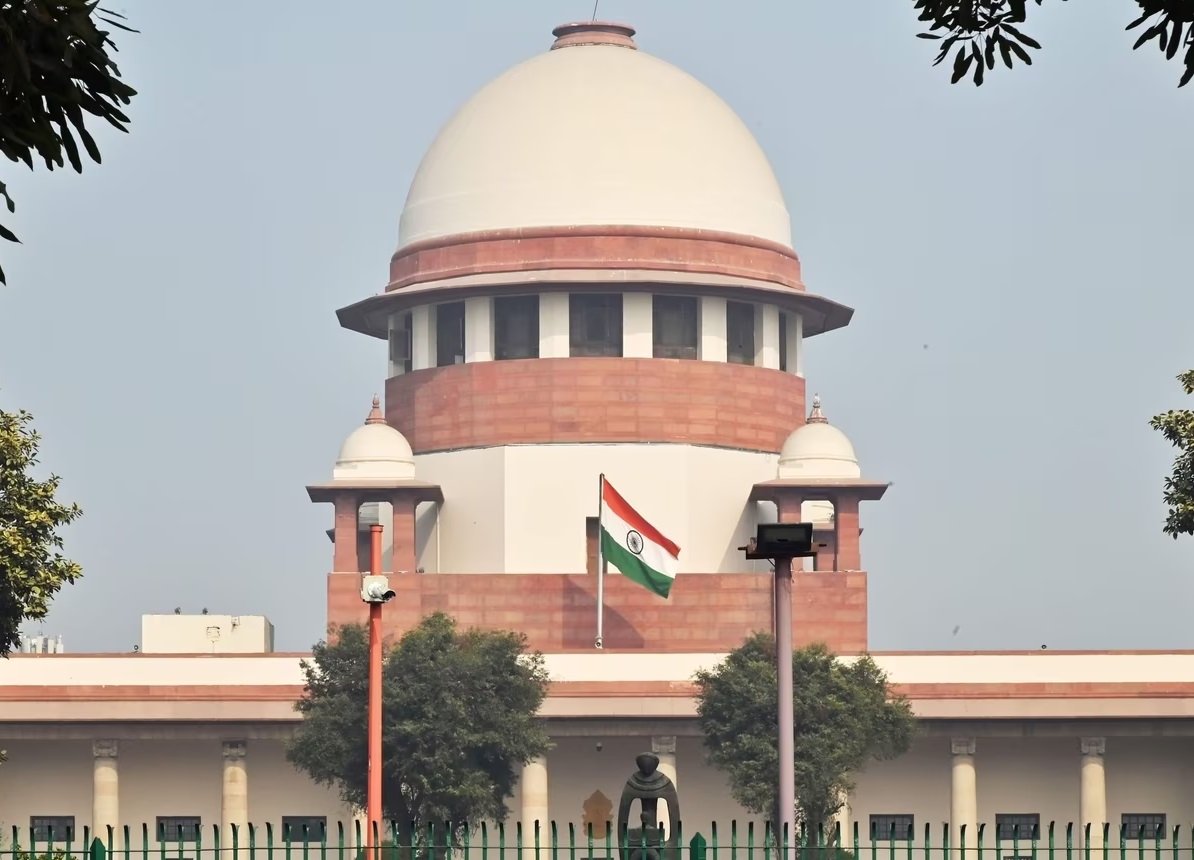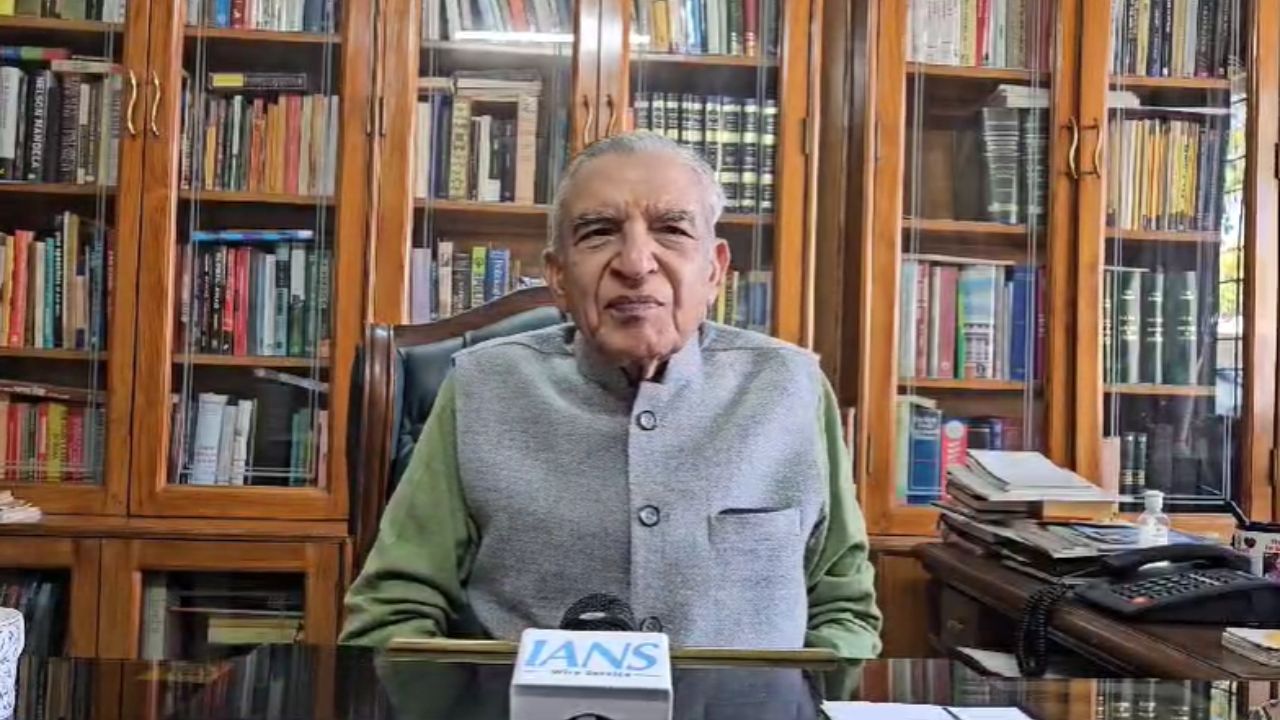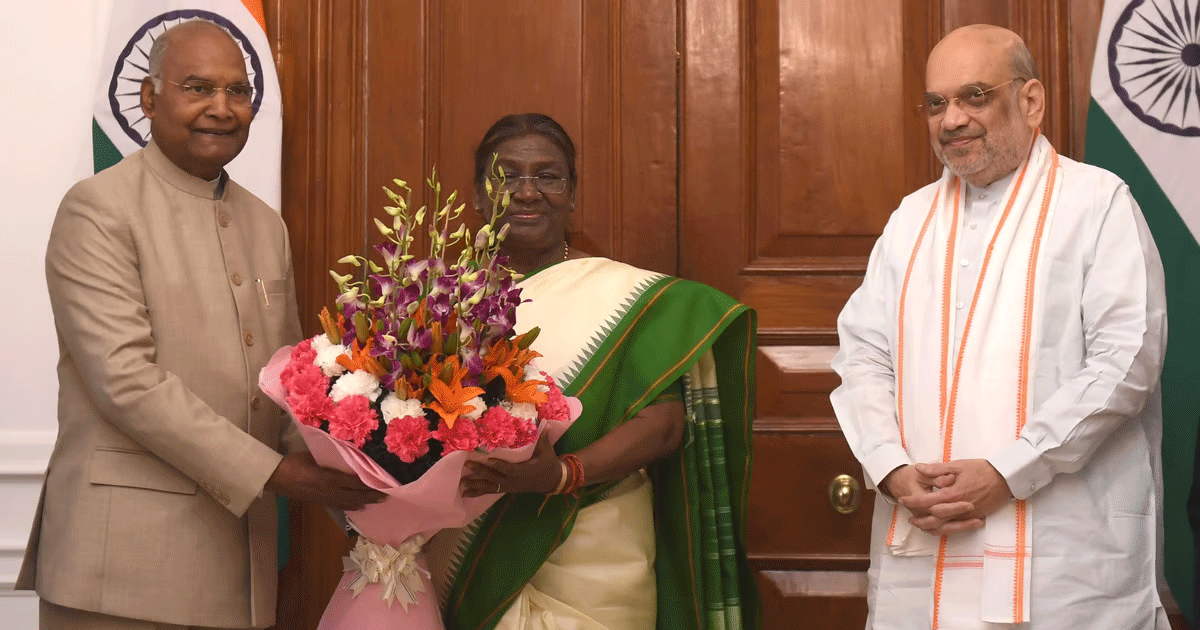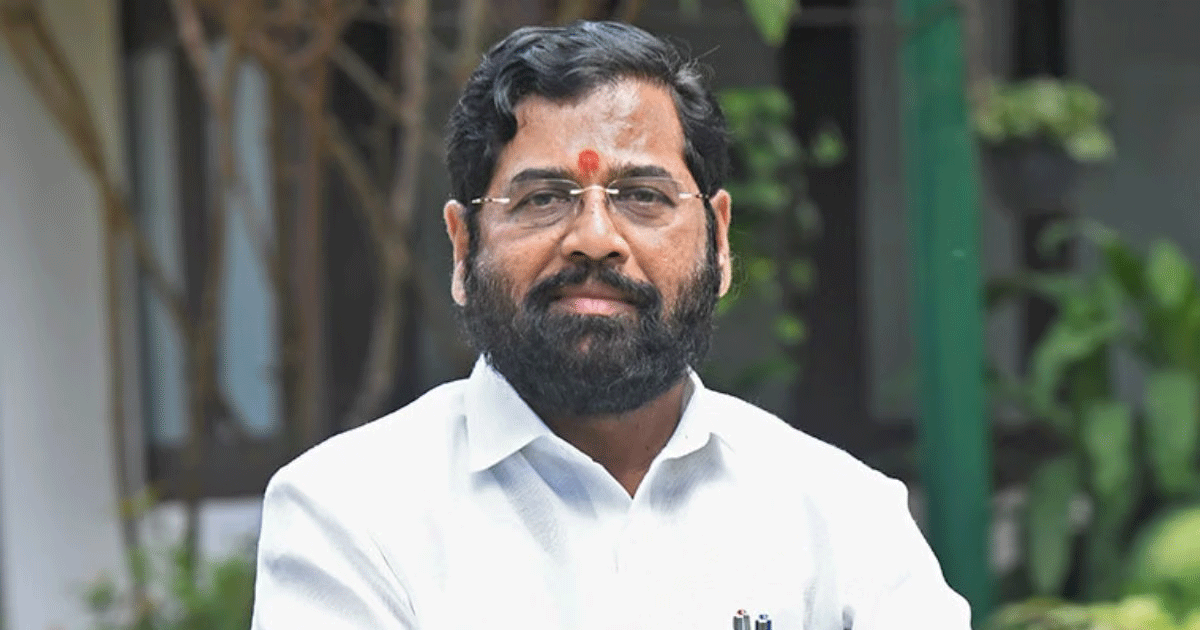National News
No fresh suit to be registered under Places of Worship Act till further orders: Supreme Court

New Delhi, Dec 12: The Supreme Court on Thursday ordered that no fresh suits would be registered under the Places of Worship Act in the country, and in the pending cases, no final or effective orders would be passed till further orders of the Apex Court.
A Special Bench headed by CJI Sajiv Khanna asked the Union government to file within four weeks its reply to the clutch of petitions challenging the validity of the 1991 Act, which prohibits the filing of a lawsuit to reclaim a place of worship or seek a change in its character from what prevailed on August 15, 1947.
The Bench, also comprising Justices Sanjay Kumar and K. V. Viswanathan, appointed advocates Kanu Agarwal, Vishnu Shankar Jain and Ejaz Maqbool as nodal counsel to make compilations of pleadings on behalf of the Union, the petitioners and the parties supporting the Act, respectively.
In March 2021, a Bench headed by then CJI S.A. Bobde sought the Centre’s response to the plea filed by advocate Ashwini Upadhyay, challenging the validity of certain provisions of the law.
The plea said, “The 1991 Act was enacted in the garb of ‘Public order’, which is a State subject (Schedule-7, List-II, Entry-1) and ‘places of pilgrimages within India’ is also State subject (Schedule-7, List-II, Entry-7). So, the Centre can’t enact the Law. Moreover, Article 13(2) prohibits the State from making a law to take away fundamental rights but the 1991 Act takes away the rights of Hindus, Jains, Buddhists, and Sikhs, to restore their ‘places of worship and pilgrimages’, destroyed by barbaric invaders.”
It further added, “The Act excludes the birthplace of Lord Rama but includes the birthplace of Lord Krishna, though both are incarnations of Lord Vishnu, the creator and equally worshipped throughout the world, hence it is arbitrary.”
Meanwhile, several intervention/impleadment applications have been moved before the Apex Court seeking the dismissal of the petitions against the Places of Worship Act.
In its application, the Managing Committee of Varanasi’s Gyanvapi Mosque said the “consequences of declaring the 1991 Act unconstitutional are bound to be drastic and will obliterate the rule of law and communal harmony.”
It said that an Article 32 petition challenging a legislative enactment must indicate the unconstitutionality of the provisions based on constitutional principles and the rhetorical arguments seeking a sort of retribution against the perceived acts of previous rulers cannot be made the basis for a constitutional challenge.
“As many as 20 suits are pending before different Varanasi courts seeking to nullify the protection accorded by the 1991 Act and to convert the character of the Gyanvapi Mosque and prevent access of Muslims to the mosque,” it said.
In a similar application, the Committee of Management of Mathura’s Shahi Masjid Eidgah said that the law was enacted by Parliament in the interest of the country’s progress, which has stood the test of time for more than 33 years.
The mosque committee said that the adjudication of the petitions against the Places of Worship Act is likely to have a significant bearing on the adjudication of its special leave petitions pending before the apex court against the dismissal of their application filed under Order VII Rule 11 of the CPC (Code of Civil Procedure) and the pending suits against the applicant mosque committee.
The Management Committee of Shahi Masjid Eidgah is party to 17 different suits being tried by the Allahabad High Court, where the plaintiffs have staked a claim over the entire parcel of land over which the Shahi Masjid Eidgah has been built, and have further sought the removal of the mosque structure from the said land, claiming the same to have been built over Krishna Janmsthan.
National News
BJP wanted to change Constitution, LoP Rahul is trying to save it: Pawan Bansal

Chandigarh, Dec 12: As the BJP accuses Leader of Opposition in the Lok Sabha, Rahul Gandhi, of disrespecting the Indian Constitution, former Union Minister and senior Congress leader, Pawan Bansal on Thursday countered the claims, pointing out that during their second term, the BJP had expressed intentions to amend the Constitution if they won more than 400 seats.
The BJP has frequently alleged that the Congress does not respect the Indian Constitution, despite the fact that the LoP is often seen with a copy of it.
Pawan Bansal said, “When the Constitution was framed, the Constituent Assembly held lengthy discussions on every aspect, considering the sentiments of the Indian people, our heritage, and our future.
“A draft was prepared that included a statement of aims and objectives presented by Pandit Jawaharlal Nehru, which later became the Preamble. It enshrined ideals like secularism, inclusivity, individual rights, and freedom.”
Bansal continued, “Now when they claim that Rahul Gandhi does not respect the Constitution even though he roams around with a copy of the Constitution, they forget that during their previous term, some BJP members openly talked about changing the Constitution.
“The BJP wanted to reinterpret it in a way that would support Hindutva. Hindutva is not Hinduism. I’m a proud Hindu, but Hindutva is a political tool, not a religion. A political system using religion for its agenda and attempting to alter the Constitution to reflect that, is a serious issue.
“India cannot progress under a ‘Hindu Rashtra’ ideology. The country can only progress if it remains secular, giving equal respect and status to people of all religions.”
He also referenced late Prime Minister Indira Gandhi’s constitutional amendments, which inserted terms like ‘secular’ and ‘democratic,’ values that were integral to the spirit of the Constitution’s creation.
“Indira Gandhi’s amendments reflected the vision discussed in the Constituent Assembly. Amending the Constitution is one thing, but scrapping its core and creating an entirely new one is another. The difference between the two needs to be understood,” he stressed.
Bansal went on to express concerns about the current state of India’s democratic institutions.
“Today, there is a direct or indirect attack on the Constitution. Our democratic institutions are being undermined. For the first time, we see a High Court judge attending a Vishva Hindu Parishad conference and speaking there.
“The Vice President of the country, too, has been silent on these issues. When such figures remain silent or act in ways that serve party interests, our Constitution is in danger. The big institutions are at risk, and this is a sign of concern. Rahul Gandhi repeatedly emphasises the need to protect the Constitution,” Bansal stressed.
On the Supreme Court’s verdict regarding the Places of Worship (Special Provisions) Act, 1991, Bansal said, “While I respect the Supreme Court’s decision, I want to express my views. This law was passed to address various public debates on the status of religious sites — whether temples were converted into mosques or vice versa. The law was meant to ensure that, except for the Ram Janmabhoomi case, all places of worship should maintain the status they had on August 15, 1947. This law is about moving forward, not looking back, and it seeks to preserve religious sites as they were.”
He further commented, “The law encourages respect for the status of religious places, without tampering with or destroying them. It’s crucial for maintaining national unity. Instead of stoking religious divisions for political gain, as some RSS leaders have done by suggesting we search for Shiva temples in mosques, we should focus on building grand temples and respecting all religious sites equally. We should avoid using religion for vote politics and instead strive for a united, strong country.”
Bansal further emphasised, “Such divisive politics weakens the country, and we must focus on strengthening our nation by respecting all religions and maintaining the values of our Constitution.”
National News
Union Cabinet Gives Nod To ‘One Nation, One Election’ Bill, To Be Introduced In Parliament Next Week

The Union Cabinet, led by Prime Minister Narendra Modi, cleared the ‘One Nation, One Election’ bill on Thursday. The bill, aimed at bringing electoral reforms to the country, is expected to be introduced in Parliament next week, according to reports.
According to sources, after being introduced in Parliament, the bill would be sent to a Joint Parliamentary Committee for detailed discussions since the government wants to build a consensus around it.
‘One Nation, One Election’ was a key promise in the BJP’s manifesto for the 2024 Lok Sabha elections. In August this year, PM Modi urged all political parties to support its implementation, emphasizing the challenges posed by frequent elections to India’s progress.
In September, the Union Cabinet approved the ‘One Nation, One Election’ plan, endorsing the report of the high-level committee chaired by former President Ram Nath Kovind, which examined the proposal.
The report, submitted in March this year ahead of the general elections, outlined the steps for its implementation. Recognizing that the government lacks the numbers in both Houses of Parliament to push the bill forward without consensus, it aims to engage political parties through discussions facilitated by a Joint Parliamentary Committee (JPC). The government also plans to consult stakeholders, including state assembly speakers and intellectuals, to build broad-based support.
The Kovind committee recommended conducting simultaneous elections for the Lok Sabha and state Assemblies as the initial phase, followed by synchronizing local body polls within 100 days. It also proposed creating a common electoral roll and voter ID system under the Election Commission of India (ECI) in coordination with state election authorities. Furthermore, the panel suggested 18 constitutional amendments to enable the implementation of the proposal.
Maharashtra
Maharashtra: Tensions Mount In Mahayuti As BJP & Deputy CM Eknath Shinde’s Shiv Sena Faction Clash Over Portfolios

Mumbai: More than two weeks after the Maharashtra Assembly election results, the Mahayuti coalition, led by Chief Minister Devendra Fadnavis, is yet to announce its cabinet expansion.
While Fadnavis and Deputy Chief Minister Ajit Pawar met senior leaders in Delhi on Wednesday, the absence of Deputy Chief Minister Eknath Shinde has fueled speculation about internal dissent. Reports suggest that cabinet expansion discussions were central to Fadnavis and Pawar’s Delhi visit, where they engaged with Union ministers, including Home Minister Amit Shah. Meanwhile, Shinde remained in Thane, reportedly dissatisfied with certain developments.
Maharashtra BJP Chief CHandrashekhar Bawankule Visits Deputy CM Eknath Shinde In Tahne
BJP state chief Chandrashekhar Bawankule visited Shinde in Thane and facilitated a conversation with Fadnavis, attempting to address grievances related to portfolio allocations. Shinde’s faction of the Shiv Sena is embroiled in intense lobbying for ministerial positions. Speculation abounds that Shinde is advocating a rotational system for distributing portfolios among his MLAs, with two-and-a-half-year terms to placate multiple factions. However, some MLAs argue for new faces, criticizing the lackluster performance of previous ministers.
Shinde is reportedly vying for key portfolios, including Home, Revenue, and Urban Development. Among these, the Urban Development portfolio is said to have been promised during negotiations. Shinde’s demands and the BJP’s willingness to meet them remain contentious. Observers note that Ajit Pawar’s proximity to the BJP could be leveraged to counterbalance Shinde’s influence. Adding to the tension, Shinde is reportedly unhappy with the BJP’s exclusion of his close associates, including Sanjay Rathod, Tanaji Sawant, and Abdul Sattar, from ministerial considerations.
Root Of The Dissatisfaction
The dissatisfaction stems from a performance evaluation of ministers who served under Shinde from June 2022 until the elections. The cabinet expansion is critical, with the winter session of the state legislature scheduled to begin on December 16 in Nagpur. The Mahayuti leadership is under pressure to finalize portfolios and ensure smooth governance. While Fadnavis and Pawar navigated the power corridors of Delhi, Shinde’s conspicuous absence has raised eyebrows. Political observers speculate whether his actions signal discontent or a calculated move to assert his demands. A crucial Mahayuti meeting on Thursday may provide clarity on the impasse.
During his Delhi visit, Chief Minister Devendra Fadnavis met President Draupadi Murmu, Vice President Jagdeep Dhankhar, Defence Minister Rajnath Singh, and Road Transport Minister Nitin Gadkari. These engagements, while routine, underscore the BJP’s focus on aligning state and central government priorities. As the lobbying intensifies, the power struggle within the Mahayuti could redefine Maharashtra’s political landscape. Whether the BJP accommodates Shinde’s demands or sidelines him using Pawar’s support will determine the coalition’s stability in the coming weeks.
-

 Maharashtra2 months ago
Maharashtra2 months agoMumbai Local Train Update: Central Railway’s New Timetable Comes Into Effect; Check Full List Of Revised Timings & Stations
-

 Crime2 years ago
Crime2 years agoClass 10 student jumps to death in Jaipur
-

 Maharashtra3 months ago
Maharashtra3 months agoFalse photo of Imtiaz Jaleel’s rally, exposing the fooling conspiracy
-

 National News2 months ago
National News2 months agoMinistry of Railways rolls out Special Drive 4.0 with focus on digitisation, cleanliness, inclusiveness and grievance redressal
-

 Maharashtra2 months ago
Maharashtra2 months agoMumbai To Go Toll-Free Tonight! Maharashtra Govt Announces Complete Toll Waiver For Light Motor Vehicles At All 5 Entry Points Of City
-

 Crime2 months ago
Crime2 months agoBaba Siddique Murder: Mumbai Police Unable To Get Lawrence Bishnoi Custody Due To Home Ministry Order, Says Report
-

 Maharashtra4 weeks ago
Maharashtra4 weeks agoMaharashtra Elections 2024: Mumbai Metro & BEST Services Extended Till Midnight On Voting Day
-

 National News3 months ago
National News3 months agoJ&K: 4 Jawans Killed, 28 Injured After Bus Carrying BSF Personnel For Poll Duty Falls Into Gorge In Budgam; Terrifying Visuals Surface











